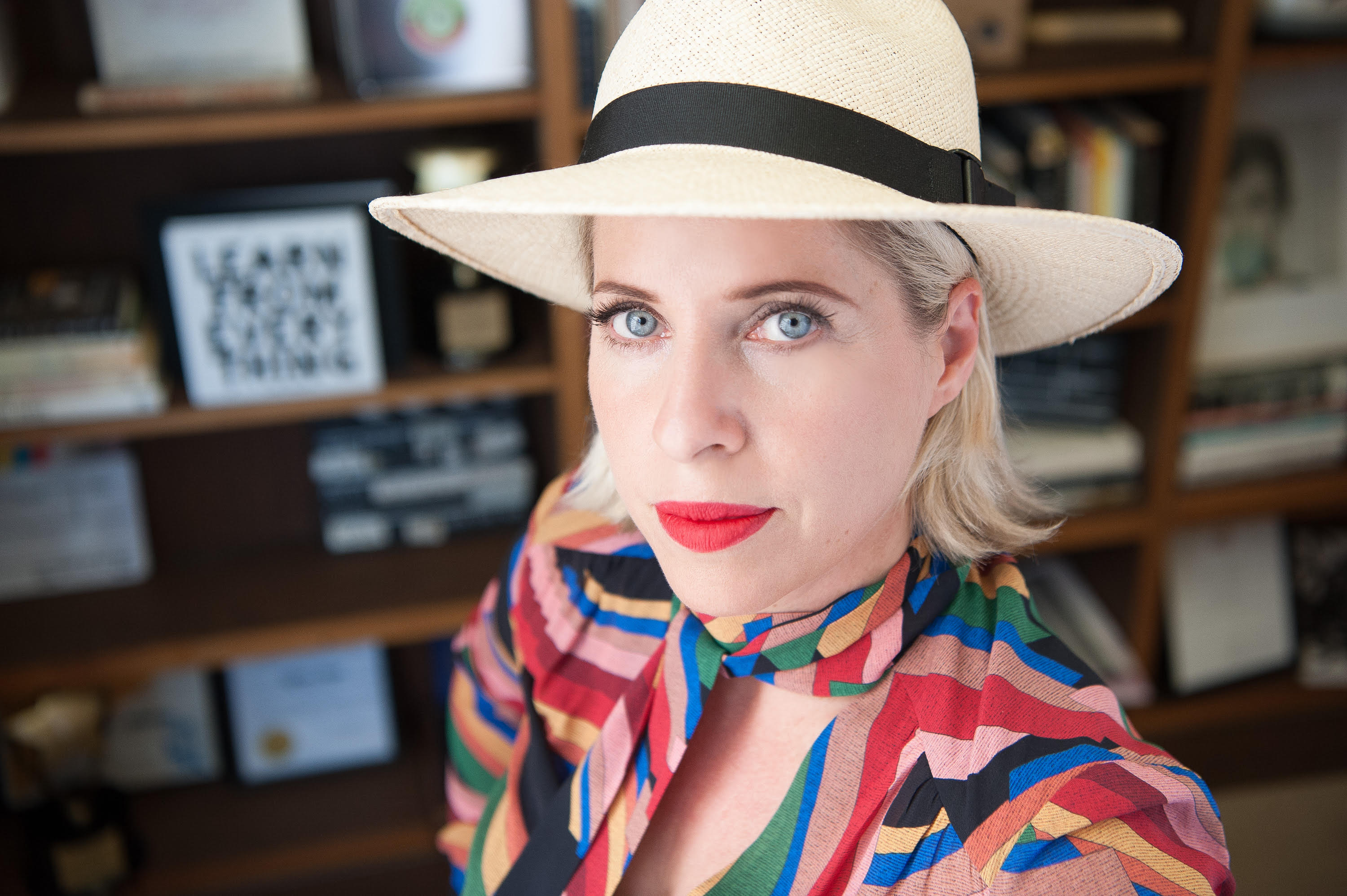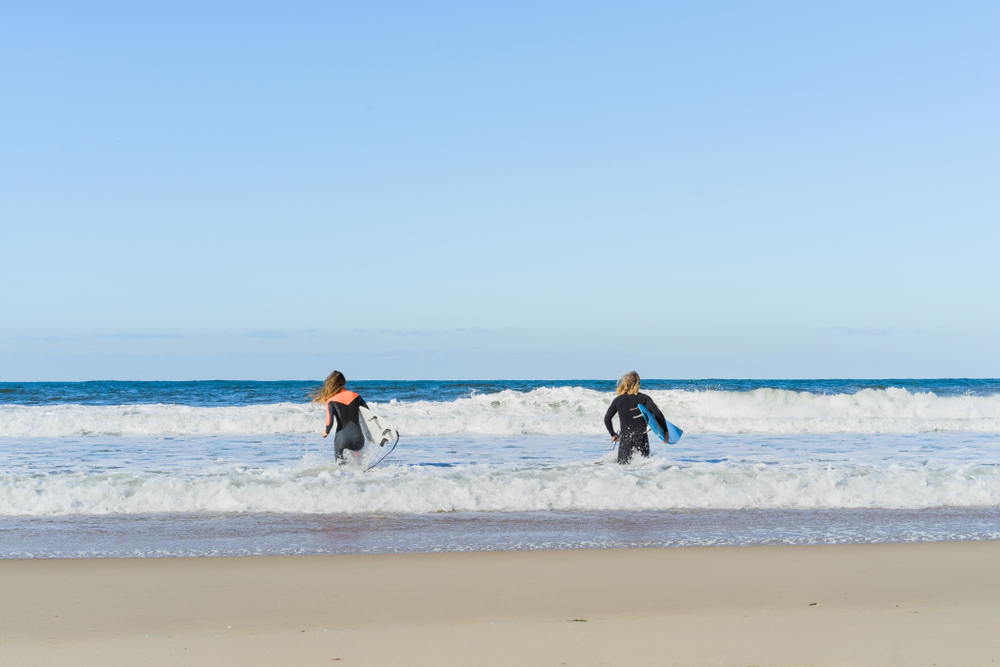As a native California, it only took a pandemic to make me finally learn how to surf with my family. During a period when we’re all riding unpredictable waves, seeking any way to release all the stress of the pandemic, the election, and everything else, learning to navigate choppy waters seemed like a good idea.
It was. While COVID-19 is a colossal reminder that nature is more powerful than you, surfing shows us how to live in the ebb and flow of this new way of life. You learn to cope with relentless crashing waves, lots of failure, and short, sweet moments of being in sync with something as powerful as the Pacific Ocean’s 707.5 million km3 of water.
I found every little lesson profoundly useful during these uncertain times. Here’s what has stayed with me:
1. Don protective gear. You need your armor against the frigid ocean in the form of a wetsuit, the marvel of engineering invented by UC Berkeley physicist Hugh Bradner in 1952, then improved by surfing icon Jack O’Neill, whose motto was “It’s Always Summer on the Inside.” Insulated by neoprene, riding the high sea, you feel like a superhero of the foam.
We all need our armor to protect us, whether it’s a wetsuit or a face mask.
2. Dive in. I am one of those people who normally goes very slowly and cautiously into cold water, preparing each new section of my body to acclimate before I get in. Surfing, there’s not time for that. My family dove into a wall of water like clumsy seals, hollering from the cold. The world we are now living in — and that will be our reality for quite some time — is very different from what we knew before. Change is uncomfortable. You’ll adjust; humans always do.
3. Be sure you are centered on the board before you “pop up.”
4. Your older now, and you may not “pop up” like your 11 year old daughter. And that’s okay. After many frustrating attempts, I realized I was trying to pop up (the explosive push-up that propels you into position on the board) with the wrong foot forward. The way that I figured this out was by having a more experienced surfer stand behind me on the sand and give me a big push to see what foot instinctively landed first. (A big #$% you and thank you for that.) The lesson here: listen to your body’s cues. What works for your child, your friend, your partner might be different from what works for you. Listen to what your body wants — be it more rest, more intensity, more consistency, or more change.
5. Don’t look at the shore when you first pop up; focus on the placement of your feet. Are they in the right position, are they in the right place on the board? The lesson here is before you look at the wide horizon — which may be a lot to take in — make sure you’re grounded in your smaller space, your home, your relationships.
6. Be patient. Making sure at the beginning you are in the right position before you get up on that board is key. If you set things up properly, you will get into the perfect position: tush out, arms like antennae in Warrior Two pose, eyes forward, all helping you ride the wave longer. Understanding that surfing is like yoga while moving on a board is helpful. Finding balance in uncertain conditions takes time, practice, and commitment. Be patient with yourself as you figure it all out.
7. When you finally stand, feet in position, body balanced, looking at the shore, stay completely present, in the moment, and go with the flow. You need to appreciate when all the preparation has finally led to a perfect moment. The saving up for the trip, the schlepping the gear, all the fails. When all that surfing foreplay finally leads to that perfect kiss of riding a wave, you must appreciate it and be so in the moment, that you are the moment. During these Covid-times, every moment of peace or joy is like catching a momentary glide on a wave.
8. Muscle memory is a powerful thing. This was actually something I’d already learned, from my family’s decade-long practice of going screen-free one day a week for what we call our Tech Shabbats. When we first started doing it, my hand twitched toward the phone that wasn’t there, the screen I couldn’t click. But over time, I trained myself to be present in my body and my mind and enjoy the distraction-free day. Ironically, I learned not to surf “the web.” Now, learning to surf “the ocean,” I relied on these same skills, repeating motions until they became natural and automatic. Your body and mind will want to return to that position and state of mind again and again.
9. Celebrate moments. There was a point when a fellow surfer in water shouted at our family to “take a party wave,” which we learned meant to surf a wave together. We tried and ended up with crossed surfboards, causing splashing collisions and awkward back flops into the ocean, surfboards slipping away from us like fleeing dolphins. We were ready to quit trying for that party wave. Then lo and behold, I was up, my husband Ken was up, and our daughters Odessa and Blooma were up, all on the same wave for two ecstatic seconds.
Our 11 year-old reminded us that the best way to finish that perfect moment is to stretch out your thumb and pinky, shake it with pleasure — throwing a “shaka” (or a “shakalaka”), the surfer victory symbol, for the pure joy of riding a wave. (Just saying “shakalaka” is like a party wave for your mouth.)
10. You will fall. You will get pummeled, you will take mouthfuls of salty water, you will get tossed around the ocean like a discarded ragdoll. You are small, the ocean is large. And it’s good to get that perspective. You are not in total control. Nature is. Stride back into the ocean like a battered warrior anyway.
As champion surfer Bethany Hamilton said, “Courage doesn’t mean you don’t get afraid. Courage means you don’t let fear stop you.” More waves, some good, some bad, are headed our way. We’ll get knocked over. We’ll get back up. So get your protective gear on. Put your strongest foot forward. And throw a shakalaka from time to time.
Tiffany Shlain is an Emmy-nominated filmmaker, founder of the Webby Awards, author of 24/6: The Power of Unplugging One Day a Week, winner of the Marshall McLuhan Outstanding Book Award and hosts a monthly #ZoomChallahBake. tiffanyshlain.com


